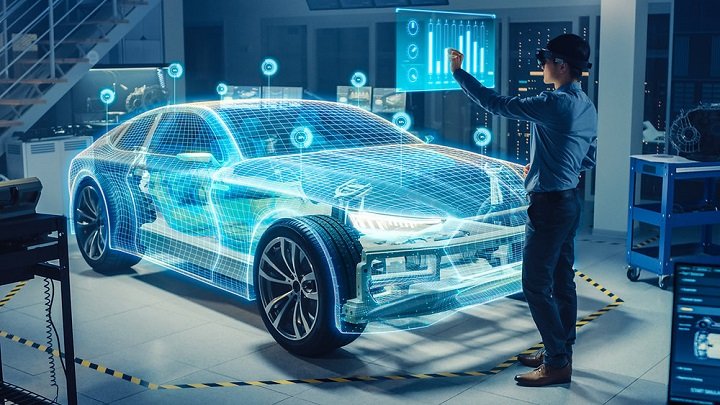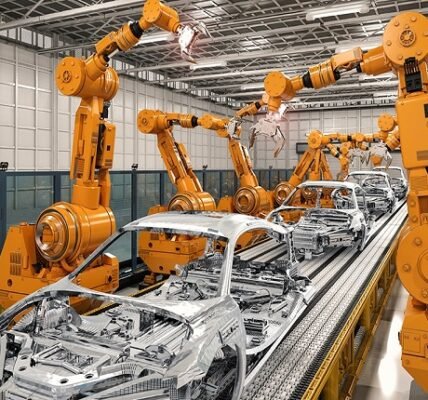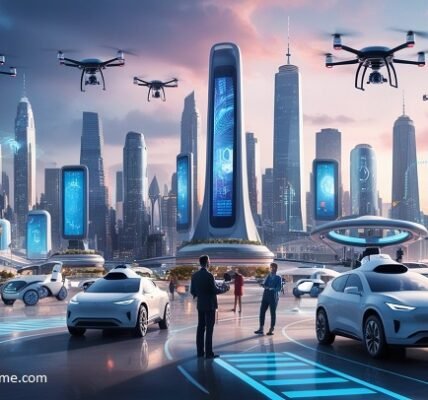How AI is changing the automotive industry the car industry has continuously been at the cutting edge of advancement. From the innovation of the gathering line by Henry Ford to the improvement of electric vehicles. It has ceaselessly advanced. Nowadays, counterfeit insights (AI) are driving an unused wave of change that’s reshaping how we connect with cars and how vehicles work. In this web journal post, we’ll investigate how AI is changing the car industry, from independent driving to savvy fabricating, and what the future might hold.
What is AI, and how is AI changing the automotive industry?
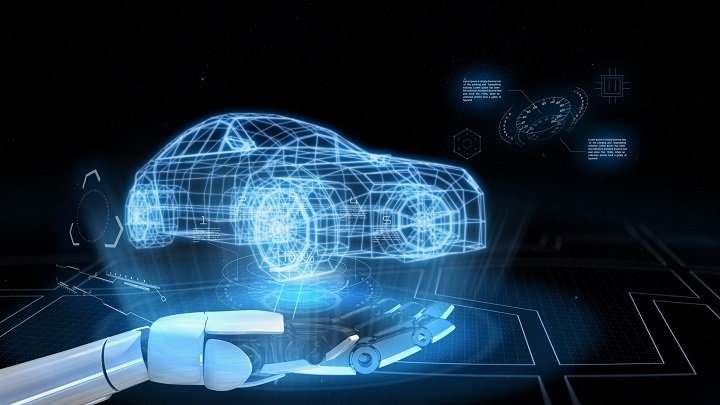
Before dropping into the details, let’s begin with characterizing AI. Fake insights allude to gear or frameworks that can do coursework that usually requires human insights, like decision-making, crisis-solving, and wisdom.
In the setting of cars, AI plays a significant part in making vehicles more intelligent. More secure and more efficient.
The utilization of AI in the car industry is becoming more vital since it has the potential to make driving more secure, move forward the productivity of car generation, and decrease natural effects. The combination of AI and machine learning—a subset of AI that permits frameworks to learn and progress from experience—makes this innovation a diversion changer for cars of the future.
Autonomous Vehicles The Future of Driving
Perhaps the most well-known application of AI in the car world is independent driving. Imagine getting into your car, telling it your goal, and at that point sitting back while it takes care of everything else. This is no longer science fiction but a reality, much obliged to AI.
How does it work? AI employs cameras, sensors, and radar to accumulate information from the vehicle’s environment. At that point, form this information in real-time to make choices, such as when to halt, quicken, or maintain a strategic distance from impediments. Companies like Tesla, Google’s Waymo, and Uber are at the cutting edge of creating completely independent vehicles.
There are five levels of independence in driving, from Level 1. Where the driver controls most capacities, to Level 5, where no human intercession is required at all.
Benefits of Independent Vehicles: How AI is changing the automotive industry
- Safety: AI can respond more speedily than people, diminishing mishaps caused by human error.
- Convenience: No need to center on the street amid long trips or commutes.
- Accessibility: Individuals with incapacities or the elderly seem to pick up modern independence.
While completely independent cars are still a long time absent. The advances we’re seeing nowadays are noteworthy and focus on a future where AI is the essential driver of vehicles.
AI in Fabricating: Revolutionizing How AI is changing the automotive industry
Keen trade services utilize AI to move forward age band lines, making homework quicker, more secure, and more cost-effective. Companies like BMW and Toyota are, as of now, utilizing AI to update their fabricating processes.
Here’s how AI is utilized in car build-up
- Predictive Support: AI can screen apparatus and foresee when it’s likely to break down, permitting repairs sometime recently when the issue gets to be genuine. This decreases downtime and increases efficiency.
- Robotics: AI-powered robots can work near human laborers to handle monotonous assignments. These robots can learn from their environment. Adjusting to modern circumstances and moving forward over time.
- Quality Control: AI can rapidly spot surrenders or irregularities in car parts, guaranteeing that, as it were, the best items take off the factory.
The utilization of AI in car fabrication not only speeds up generation but also makes it more maintainable by lessening squandering and progressing vitality efficiency.
AI-Powered In-Car Help: More intelligent, More secure Driving of How AI is changing the automotive industry
You might, as of now, have experienced AI in your car without indeed realizing it. Numerous cutting-edge vehicles come equipped with AI-powered frameworks that help with different viewpoints of driving. These frameworks are planned to make driving simpler and safer.
Examples of AI in regular cars:
- Adaptive Voyage Control: This framework employs AI to keep a secure distance from the car in front of you, altering speed as necessary.
- Lane Flight Caution: AI makes a difference in distinguishing when you’re floating out of your path and cautioning you to redress your steering.
- Automatic Stopping: AI can direct your car into a stopping space with negligible input from the driver.
These highlights may appear little. But they are laying the basis for more advanced driver-help frameworks that will make driving more secure in the future.
AI and emotional Vehicles: Boosting use and Sustainability
The rise of thrilling vehicles (EVs) is one of the most vital patterns in the car trade. AI is playing a key part in the creation of these vehicles, making them more dynamic and practical
. One of the fundamental challenges with EVs is the battery—it needs to last longer and charge quicker. AI is making a difference and handling these issues in a few ways:
- Battery Administration: AI can screen battery utilization and optimize vitality utilization, making EVs more effective and amplifying their range.
- Smart Charging: AI can learn from your driving propensities and suggest the best times to charge your vehicle based on your plan and vitality costs. This not only spares cash but also diminishes strain on the electric grid.
- Self-Driving EVs: Numerous electric vehicle producers are moreover working on joining AI-powered independent driving into their cars, making the future of transportation indeed more maintainable and efficient.
With AI and electric vehicles working together. The future of driving looks cleaner, greener, and smarter.
Challenges and Moral Considerations
AI is without a doubt changing the car industry. It’s not without its challenges. Moral questions around AI in cars are a hot theme. For example, if an independent vehicle has to choose an unavoidable mishap. How does it choose who or what to ensure? This situation raises concerns about the programming of moral decision-making into AI systems.
Additionally, there’s the issue of work relocation. As AI gets to be more coordinated in car fabrication and independent driving. A few employments may get out of date.
The Street Ahead: What the Future Holds—How AI is Changing the Automotive Industry?
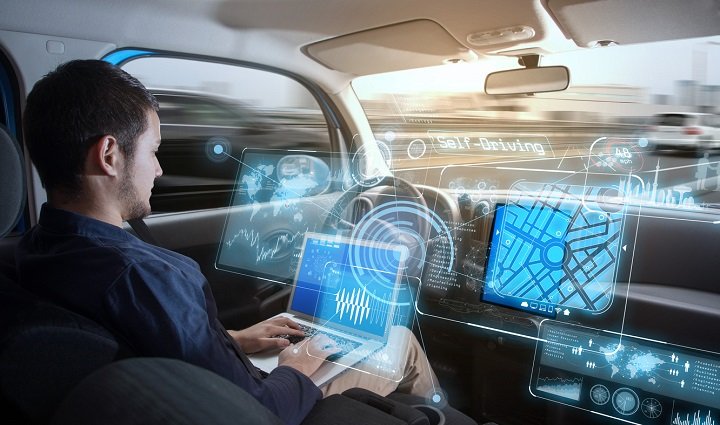
The travel of AI in the car industry is just starting. With continued progressions in AI innovation, we can anticipate to see indeed more noteworthy changes in the long time to come. Here’s what the future might look like:
- Fully Independent Armadas: Envision a world where ride-sharing administrations like Uber are independent, with armadas of self-driving cars giving transportation.
- AI-Enhanced Activity Frameworks: AI may be utilized to oversee activity streams in cities, lessening blockage and cutting down on travel time.
- Personalized Driving Encounters: In the future, AI seems to learn your driving propensities and inclinations, customizing your car’s settings to suit your needs perfectly.
- One thing is clear: AI is not a fair drift in the car industry—it’s the future.
Conclusion:
AI is changing the car industry in ways we may have dreamed of a few decades prior. From self-driving cars to more brilliant fabricating. The effect of AI is verifiable. Whereas there are still challenges to overcome, the potential benefits—improved security, effectiveness, and sustainability—are as well extraordinary to overlook. As AI proceeds to advance. It will, without a doubt, shape the future of transportation, making it more brilliant, more secure, and more proficient for everyone.
For more in-depth experiences on AI’s part in the car industry, check out this article from the MIT Innovation Survey for a more profound jump into how AI is forming the future of mobility.
Explore more on this point by going to Forbes’ AI and the Future of Driving for extra assets and the most recent patterns in the car world.
FAQs:
When will fully autonomous cars become common?
Fully autonomous cars (Level 5, where no human intervention is required) are still in development and could become common within the next decade. While some vehicles with high levels of autonomy (Level 3 and Level 4) are being tested today, it will take more time to perfect the technology, address legal concerns, and gain public trust.
How does AI impact car maintenance?
AI helps with analytical upholding, where systems observe the car’s performance in real-time to predict budding issues before they occur. This reduces breakdown and improves the overall consistency of vehicles, saving time and money for car owners and manufacturers alike.
Will AI make driving easier for everyone?
Yes, AI is considered to make driving easier by automating tasks, assisting in tricky conditions, and civilizing vehicle safety.
What’s the role of AI in travel in a row?
AI can be used in tidy cities to optimize travel flow, reduce jams, and run public moving systems
. By analyzing data from sensors and cameras on the roads
AI can help create efficient traffic patterns, reduce fuel consumption, and cut down on emissions.
